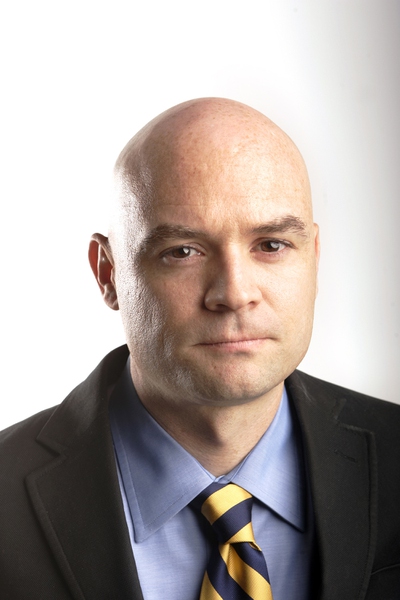Monday, Aug. 29, 2011 | 2:50 p.m.
Sun archives
The American Sociological Association held its annual convention at Caesars Palace this month, and their reaction to Las Vegas has been like a parody of academic pomposity — noses turned up at us like the French aghast at California wine.
The hubbub was written up with some snark in the trade publication Inside Higher Ed:
“The very aspects of Las Vegas that might make it fascinating to a sociologist — the emphasis on consumerism and decadence; the unapologetic obsession with (and exploitation of) female flesh; and the city’s most celebrated pastime gambling ... — are also the sorts of things that tend to be off-putting to academics, especially (or at least) in the presence of their colleagues.”
If you read my column regularly you know I’m no Vegas apologist and often criticize aspects of our community that I think need to improve. But the sociologists’ attacks are lame and ill-informed and come from people whose doctorates seem bathed in condescension.
An accompanying video shows Sharon Zukin of Brooklyn College of the City University of New York giving a snide, ill-informed assessment. You have to watch it to believe it, but here are some favorite quotes: “I really hate Las Vegas. It’s just a big moneymaking machine.”
There’s, of course, nothing wrong with making money. Nor is Las Vegas unique in that regard. A history lesson for the Ph.D.: Cities, by definition, are moneymaking machines; they were formed to facilitate trade, i.e. moneymaking.
“People think they’re having fun here. But in fact they’re wandering through a maze of really inauthentic, fake landscapes.”
First of all, you’re probably wandering into a dangerous maze yourself by telling people that when they think they’re having fun they’re not actually having fun.
Second, authentic, the dictionary says, means “not false or copied; genuine; real.” That’s the beauty of the Strip — there’s no place like it, so how can it be anything but authentic. It’s also totally honest about what it is, unlike the rest of the country.
“Theater of consumption, a place where people dress up to show themselves to other people. Las Vegas is a place where people are constantly watching others, but it’s not a real city.”
The 2 million people who are educating their children and volunteering and starting businesses and making art and building a community might disagree with you, about whether this is any less of a “real city” than Fresno or New York City.
As for dressing up and showing themselves to other people — uh, what? How does this make us different?
A separate critique was equally ignorant — that Las Vegas isn’t sustainable.
It’s easy to see the fountains on the Strip and feel the dry heat of the Mojave and presume we’re not sustainable. But as Robert Lang, director of Brookings-Mountain West, noted, we’re closer to our water source than any other city that relies on the Colorado River. (Denver is on the east side of the Rockies, for instance. And Southern California and Salt Lake City are hardly some Scandinavian eco-paradises.)
Because of the soaring price of land during the housing bubble, we wound up with a very dense city, even if its not particularly walkable. Still, that density means less of a carbon footprint. They probably also had no idea that CityCenter is the largest construction project to ever be LEED certified, meaning it’s green and was built green.
Finally, they said our city is parasitic. But as Lang noted, we actually have a positive balance of accounts, meaning an international trade surplus, unlike most of the rest of the country, which has a trade deficit. Which is parasitic?
Las Vegas had its defenders, including UNLV’s own sociology faculty.
Shannon Monnat told Insider Higher Ed that “[I]t seemed counterintuitive to me that so many sociologists, whose job it is to study social relationships, social structures and social interactions, were so resistant to leaving the Strip and venturing to other parts of Las Vegas.”
Lynn Comella of UNLV’s Women’s Studies Department, who tipped me off to the rain of close-minded conceit, wrote to me in an email that the “reaction by a number of those quoted in the piece seem contrary to what it means to have a ‘sociological imagination’ or be intellectually curious about people, places, social arrangements, and social interactions, etc. I found it quite stunning and more than a little offensive.”
Lang, a sociologist by training, was incensed. He noted that after a labor dispute made holding the conference in Chicago impossible, the sociologists only had eight months to find and organize the annual conference, and clearly only Las Vegas could deliver.
“If Las Vegas did not exist, we would need to invent it just for conventions alone.”
In an email, he continued the rant: “More important than providing a venue for wayward academics in an esoteric and almost fetish-like discipline, the city hosts the most important and cutting-edge technology gatherings where critical connections are made and the whole tech world advances.”
The criticism from the eggheads, he told me, stemmed from being “offended by the habits of the American lower middle class. You’re offended by American exuberance, the whole thing of the foot to the pedal. It offends your asceticism.”
Go to Indianapolis next year, some place “authentic” and boring.


Join the Discussion:
Check this out for a full explanation of our conversion to the LiveFyre commenting system and instructions on how to sign up for an account.
Full comments policy